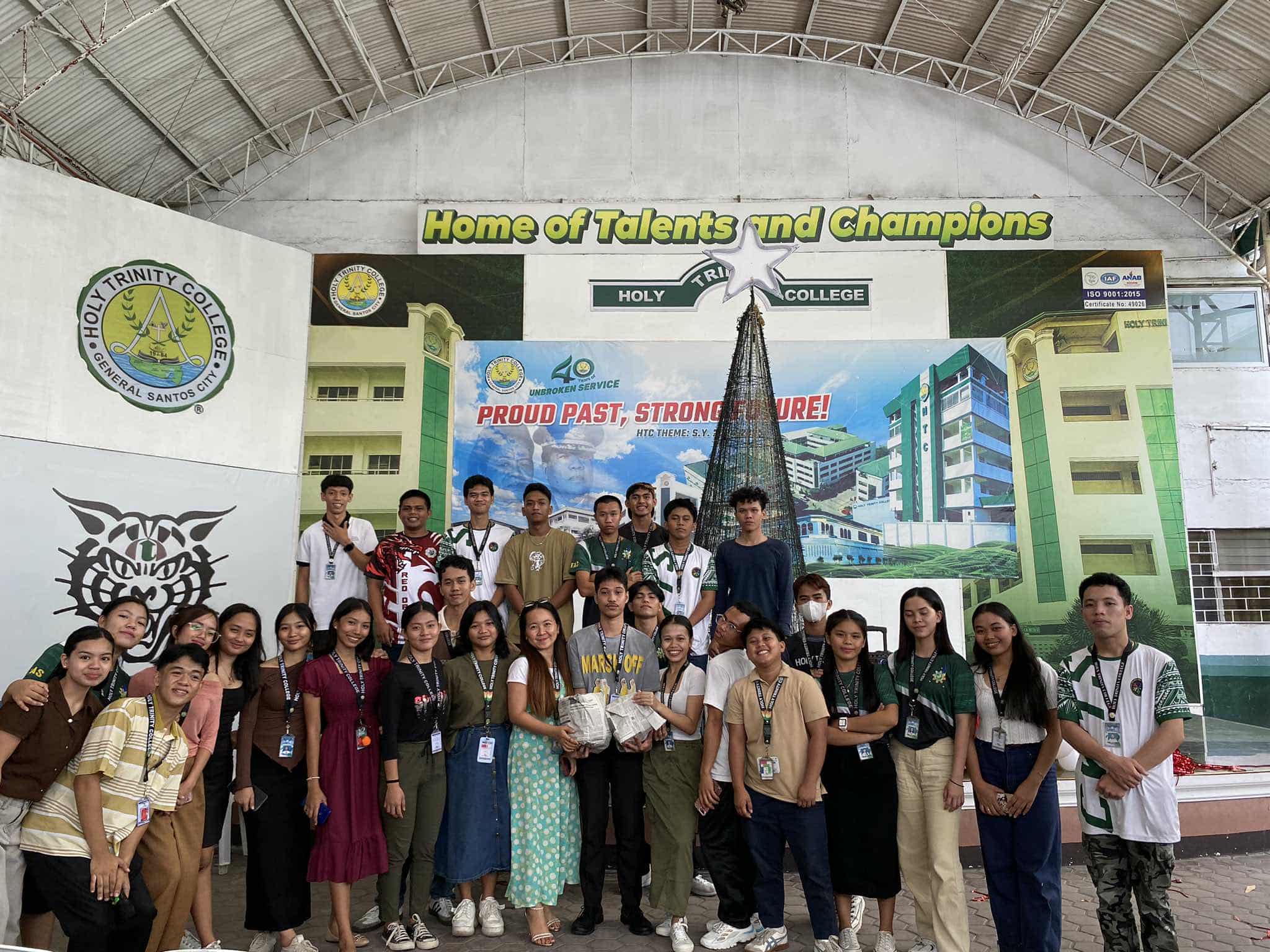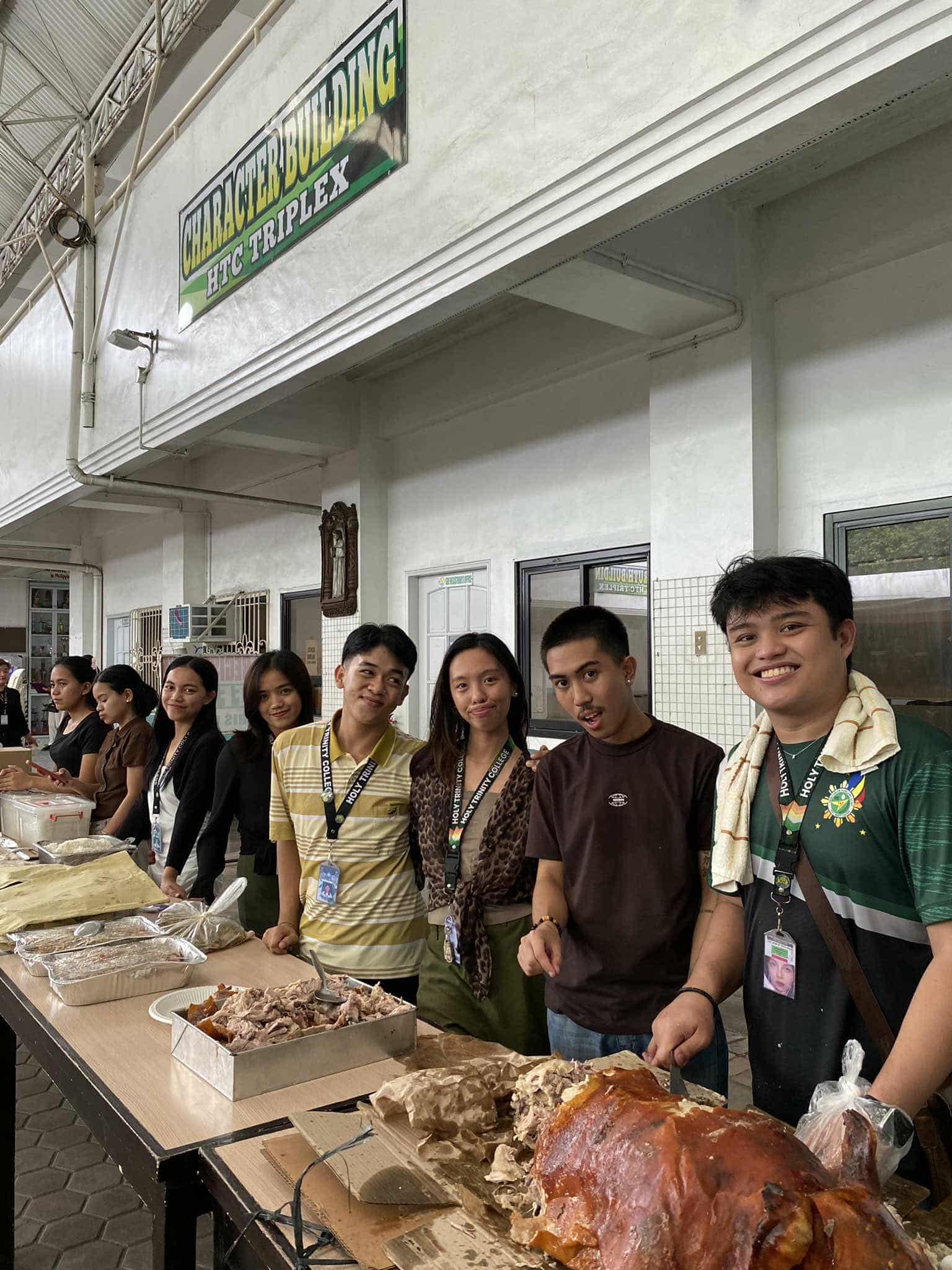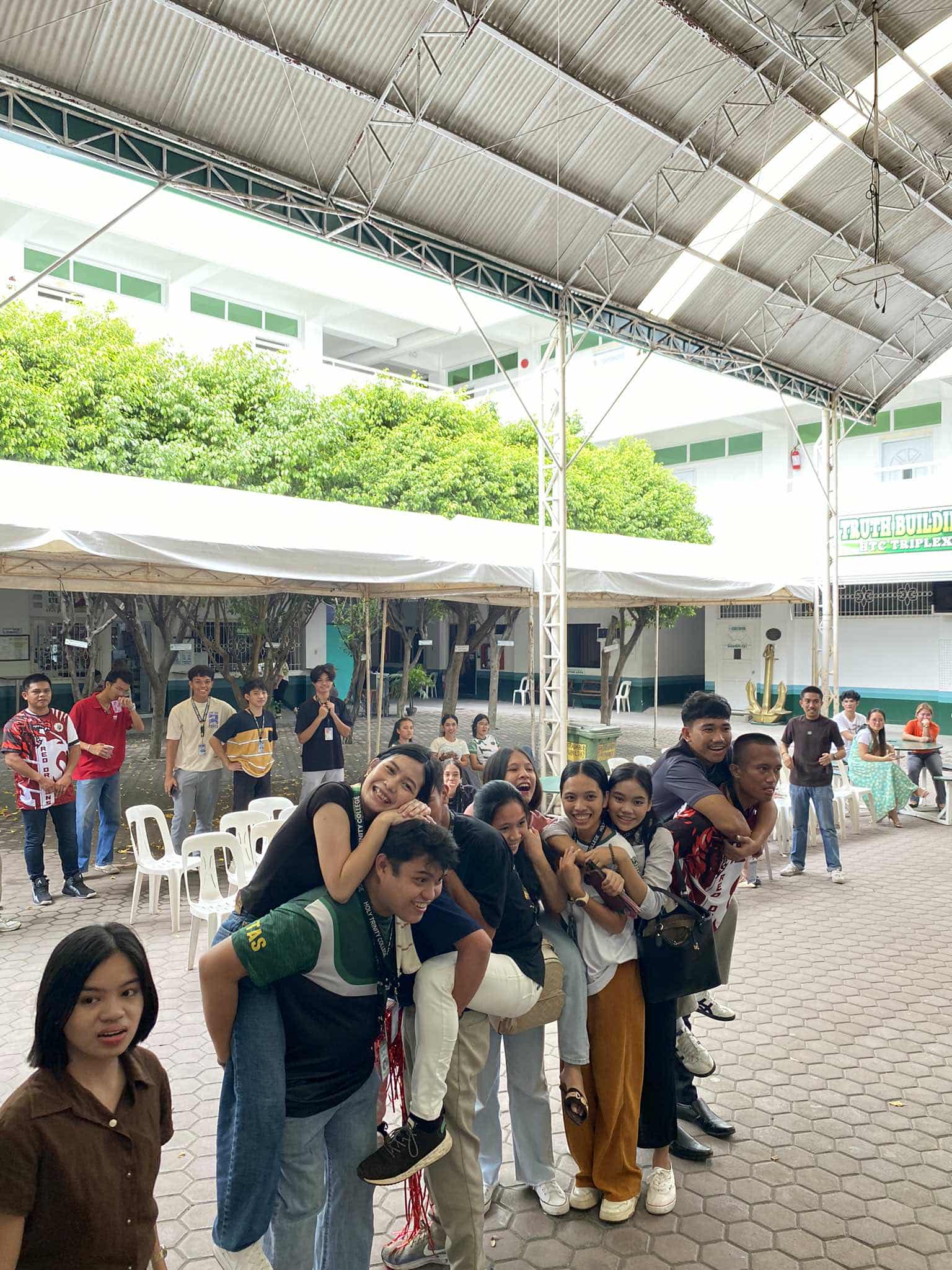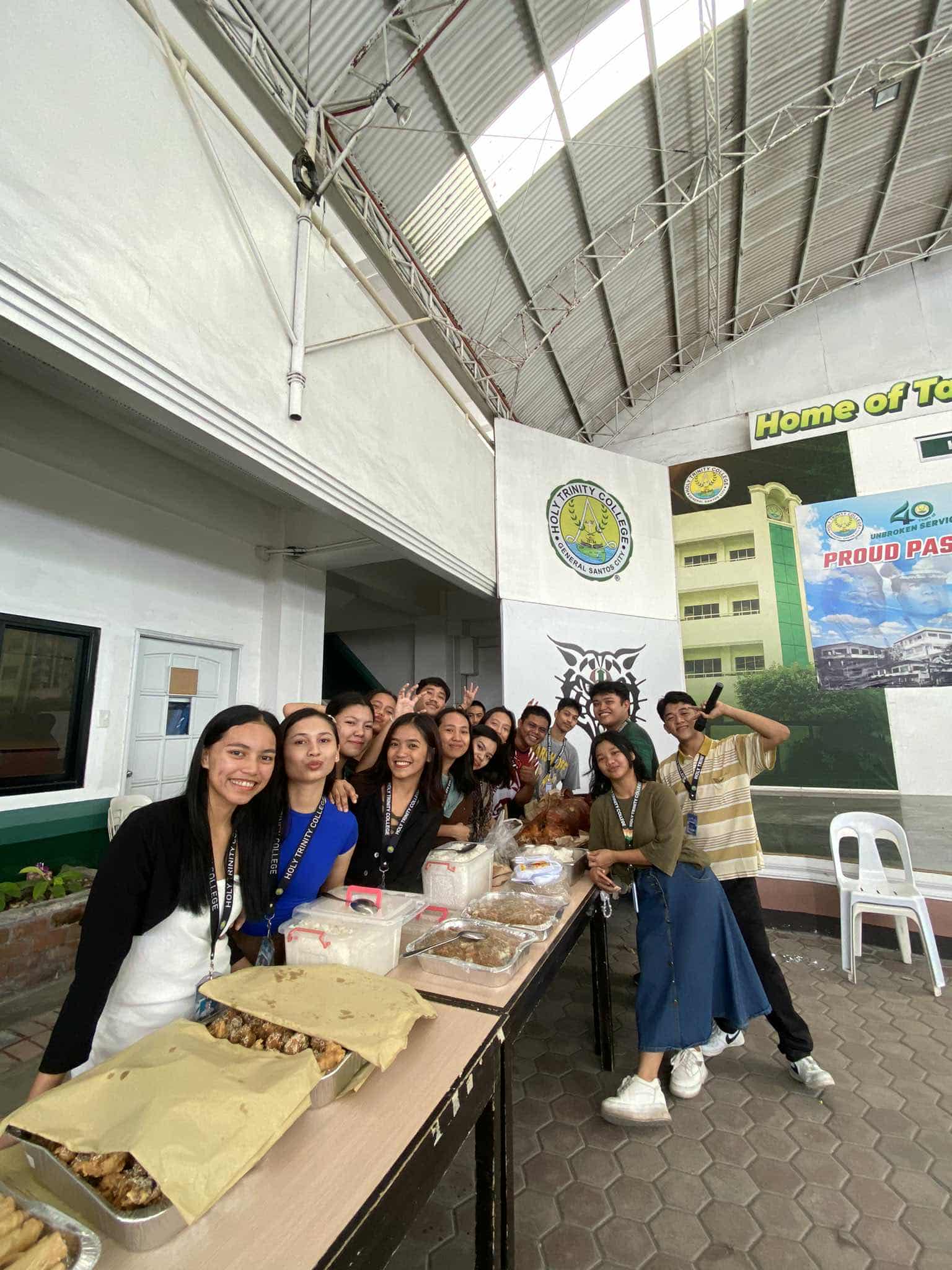Trinitarian Auxiliary Staff (TAS) — Work, Learn, and Succeed!
The Trinitarian Auxiliary Staff (TAS) program offers students the unique opportunity to serve the Holy Trinity College community while pursuing their studies. Through dedicated service of at least 120 hours per month, members gain valuable work experience and discipline. In return, they enjoy scholarship benefits and additional privileges for those who maintain excellent performance. TAS members not only earn their education through hard work but also embody the spirit of commitment, integrity, and service, the true hallmarks of a Trinitarian scholar.
This year 2024 Holy Trinity College welcomed 86 TAS members. Who actively engaged in their academic and social events, not to mention their participation in the SPORTS FEST 2024, held at NDDU together with RMMC, and their very own 2024 Christmas Party.
This comprehensive student employment and scholarship initiative, characterized by service, discipline, and equitable opportunity, directly strengthens Holy Trinity College’s commitment to the United Nations Sustainable Development Goals (SDGs):
SDG 1 (No Poverty). Through the Trinitarian Auxiliary Staff (TAS) Program, HTC provides students from economically challenged families the means to continue their education while earning financial support. This initiative contributes to poverty reduction by empowering students to sustain their studies and improve their future socioeconomic well-being.
SDG 4 (Quality Education). The TAS Program ensures that deserving students, regardless of financial limitations, have access to quality education. By combining work experience with academic pursuit, the program promotes lifelong learning, discipline, and excellence.
SDG 8 (Decent Work and Economic Growth). TAS offers meaningful work opportunities that develop students’ productivity, responsibility, and professional readiness, aligning with the goal of fostering decent work and preparing youth for sustainable employment.
SDG 10 (Reduced Inequalities). By opening educational pathways for students from low and lower-middle income households, the TAS Program reduces inequality and strengthens inclusivity within the academic community.
SDG 17 (Partnerships for the Goals). The success of the TAS Program relies on the collaboration between HTC’s academic and administrative sectors, ensuring sustainability and alignment with broader educational and social development goals through effective institutional partnerships.



